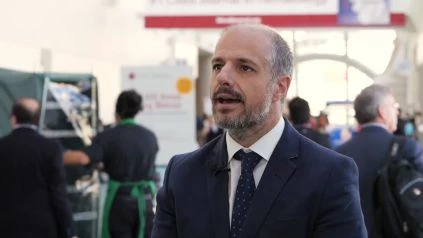Raúl Córdoba, MD, PhD, of University Hospital Fundación Jiménez DÃaz, Madrid, Spain, discusses his two main highlights from ASH 2016. The first highlight includes learning more and more about adaptive therapy in Hodgkins lymphoma. For example, if interim response after two cycles of chemotherapy leads to a PET-CT negative, we can decrease the regimen in order to decrease toxicity, without affecting the outcome. If the patient remains PET-positive after two cycles, we would have to increase the dose level of chemotherapy in order to overcome this bad prognosis factor. Another field of increasing interest is the treatment of elderly patients, particularly those with mantle-cell lymphoma. Experts are working towards better identifying frailty and co-morbidity in elderly lymphoma patients in order to receive a better outcome with lower toxicity. Recorded at the 2016 American Society of Hematology (ASH) Annual Meeting, held in San Diego, CA.
[the_ad id="32629"]

